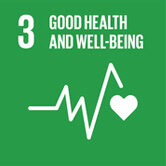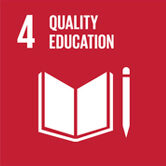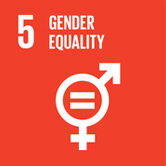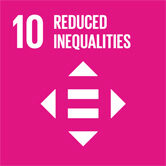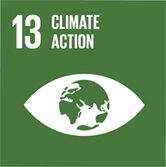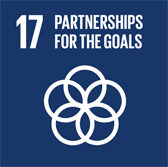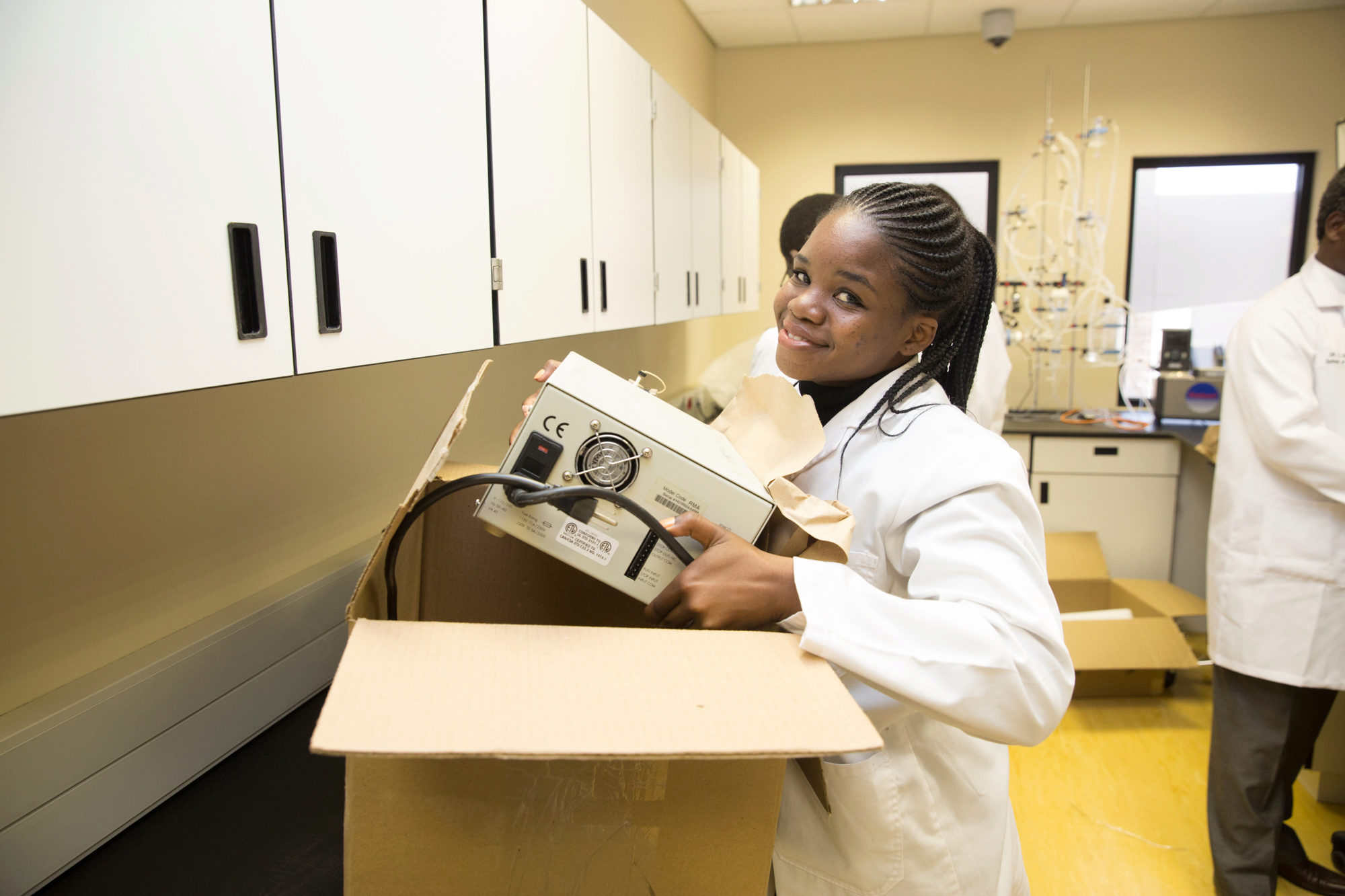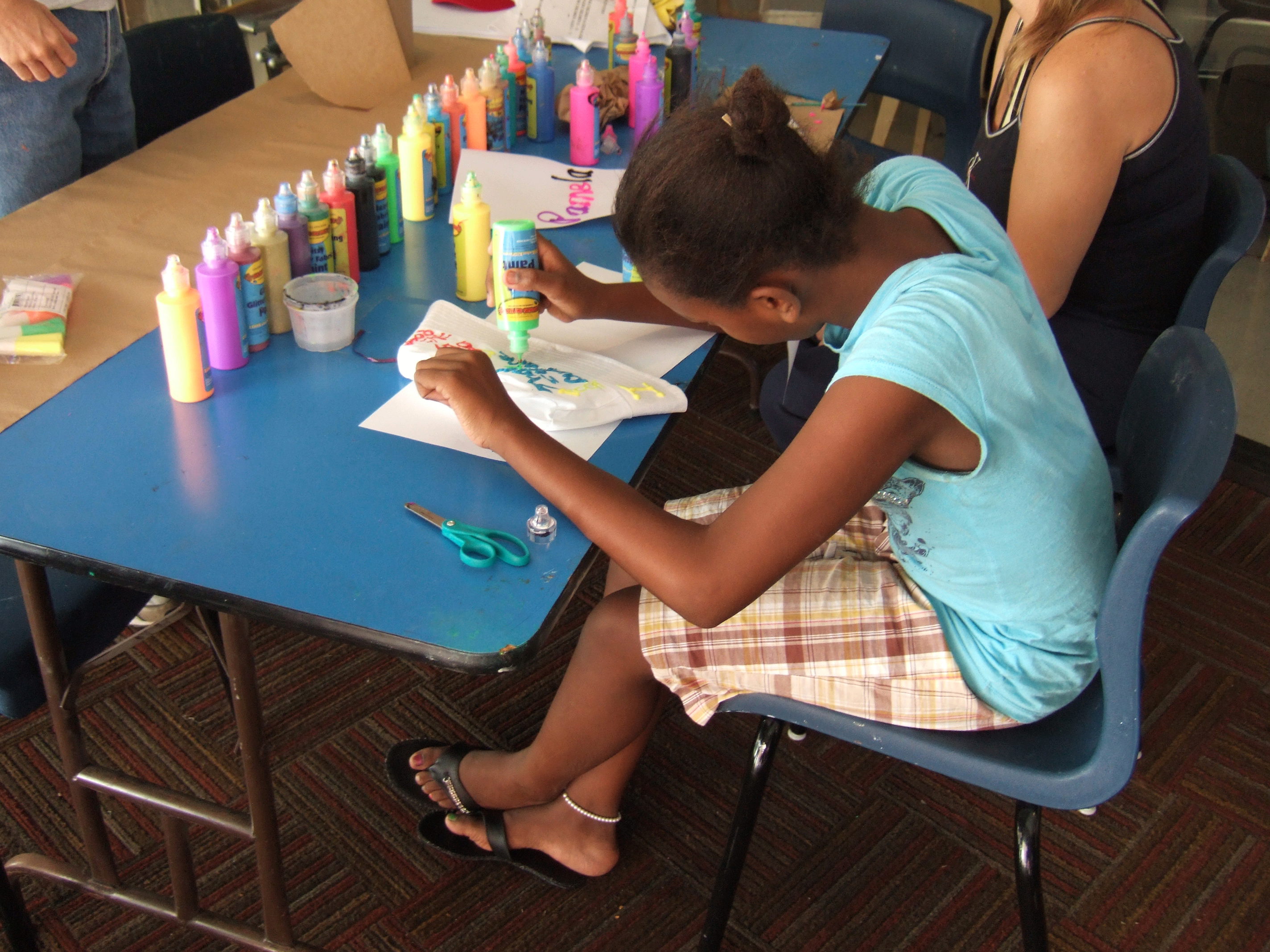
2017 Winner: We Care Solar
We Care Solar promotes safe motherhood and reduces maternal mortality in developing countries by providing health workers with reliable lighting, mobile communication, and medical devices using solar electricity. We Care Solar designs and deploys complete solar electric kits called Solar Suitcases to maternal health centers. Solar Suitcases supplies medical lighting and essential electricity for lighting up rooms, charging cell phones, and providing electronic fetal heart rate monitoring. Solar Suitcases also promote a healthier environment by reducing air pollution, CO2 emissions, and the risk of fire. These essential components of effective, around-the-clock emergency obstetric care are delivered to last-mile health centers around the world to ensure safety for patients, particularly during childbirth.
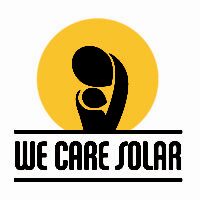
Primary Area of Impact: Healthcare
Geographic Areas (Continents): Africa, North America
Geographic Areas (Countries): 41 Countries globally
Year Founded: 2011
Mission: We Care Solar promotes safe motherhood and reduces maternal mortality in developing regions by providing health workers with reliable lighting, mobile communication, and medical devices using solar electricity.
Website: www.wecaresolar.org
The World Health Organization reported that only 28% of health facilities and 34% of hospitals had an intermittent supply of electricity in 11 countries in sub-Saharan Africa.
Social Challenge
Pregnancy complications claim the lives of 303,000 women and over a million newborns each year. The absence of a stable source of electricity remains a crucial factor contributing to high maternal and newborn mortality rates in low-income countries and rritically ill patients have been turned away from hospitals lacking electricity. The World Health Organization reported that only 28% of health facilities and 34% of hospitals had an intermittent supply of electricity in 11 countries in sub-Saharan Africa. One in four health facilities had no electricity at all. The consequences can be tragic – particularly for maternal-child healthcare.
Mothers and newborns in the developing world die every day giving birth in badly lit or unlit and unsafe conditions. Health workers struggle at night by kerosene lantern or candlelight, unable to detect life-threatening conditions or provide essential services. Life-saving medical procedures, including cesarean sections, can be postponed or canceled. Midwives may be unable to adequately assess newborns for complications, birth defects, or asphyxia. They cannot use essential medical devices or make phone calls for emergency referrals. Energy poverty negatively affects quality maternal health care.
UN Sustainable Development Goals (SDGs)
Leadership
We Care Solar (WCS) works in remote areas in Africa and Asia where more than one billion people live without access to modern electricity. They recognized a linkage between sustainable electricity and maternal mortality at a time when those concepts were operating in silos. They have initiated national Solar Suitcase programs in five priority countries with high rates of maternal mortality and inadequate energy access, giving frontline health care workers the ability to light up medical rooms, charge cell phones, and provide electronic fetal monitoring. WCS is partnering with ministries of health and energy, UN agencies, NGOs and solar installers to ensure that every eligible maternal health center within a country has reliable power. They are leading a global advocacy and communications initiative, the Light Every Birth initiative, to end energy poverty in maternal health care and to advocate for clean energy solutions that strengthen maternal care.
WCS is also promoting women in leadership through their Solar Ambassador program, which equips women to lead their international solar training programs.
Impact
WCS uses combination of robust quantitative and qualitative methods to measure their impact. As of 2022, the impact WCS has made, in partnership with over 75 health, technical, and government partners, include:
- Equipped 7,163 health centers with Solar Suitcases across more than 45 countries
- Averted an estimated 79,760 tons of CO2
- Made available 225 million hours of medical light by deploying 6,200 Solar Suitcases to health facilities
- Served over 10 million mothers and newborns in health centers using Solar Suitcases
- Trained 30,606 health workers
External entities have also evaluated the impact of WCS and provide further support for the effectiveness of the Solar Suitcase in meeting rural health care needs. For instance, the Liberia Innovations for Poverty Action examined 213 Liberian health facilities (2018-2019) to document Solar Suitcase usage and performance. Selected findings included improvements in electrification and lighting with a four-fold reduction in power interruptions, frequent use of the fetal Doppler during labor and antenatal care, significant cost-savings, improved health worker and patient morale, and increased facility utilization.
Innovation
WCS’s innovative, award-winning Solar Suitcase is contributing to reductions in maternal mortality and morbidity. While many medical supplies have been provided to developing countries in the past, the obstetric Solar Suitcase was uniquely designed to address a specific maternal-fetal need. Therefore, the product includes all the necessary components of providing optimal maternal care: medical quality lighting, fetal monitors, power for charging cell phones and small devices, and headlamps with rechargeable batteries. WCS conducted many field tests with health workers, allowing them to carefully refine the product design before manufacturing at scale. WCS is staying abreast of newest technologies by constantly innovating their product to make their lights more powerful, durable, and easy to use. Their innovation is not only informed directly by their on-site assessments, but also by the most recent advancements in the solar technology sector.
Transferability
We Care Solar bridges the gap between energy poverty and global maternal mortality. They combine two fields of expertise, engineering and health care, illustrating how social challenges often require cross-sectoral solutions. Through the development and distribution of their innovative Solar Suitcase technology, they provide a model of how to design an innovation to solve a social problem in a low-resource country and develop effective local partnerships that enable them to work in different countries facing their own unique challenges.
In order to scale, WCS developed a train-the-trainer program for partners to ensure that their technology is safely installed, properly used, and easily maintained by local health staff. These hires have increased their operational capacity for collaboration and knowledge-sharing. Externally, WCS has presented their learnings to their community of partners to share knowledge across the sector. Their advocacy for their Light Every Birth initiative encourages governments, UN agencies, and international NGOs to commit to providing reliable electricity to all health centers. Additionally, through their We Share Solar educational programming, WCS is engaging teachers and students through project-based solar education and empowering students to be global changemakers.
Accomplishments
- Miller Center Social Impact Excellence Award, 2022
- Energy Globe World Award, Zimbabwe, 2021
- Renewable Transformation Challenge Finalist, 2021
- Forbes 50 Over 50, 2021
- eTown eChievement Award, 2021
- F.M. Kirby Impact Prize Finalist, 2021
- WISH Innovation Award, 2020
- Roddenberry Prize Finalist, 2020
- Alliance for Rural Electrification Award, 2020 </li.
- Time 100 Best Inventions, 2019
- Zayed Sustainability Prize, 2019
- Edison Gold Award Winner, 2019
- Ashden Award Finalist, 2019
- UN Momentum for Change: Lighthouse Activities Winner, 2017</li.
- Drucker Prize Winner, 2017
- Bloomberg New Energy Pioneers, 2017




